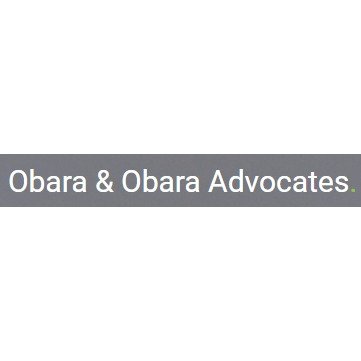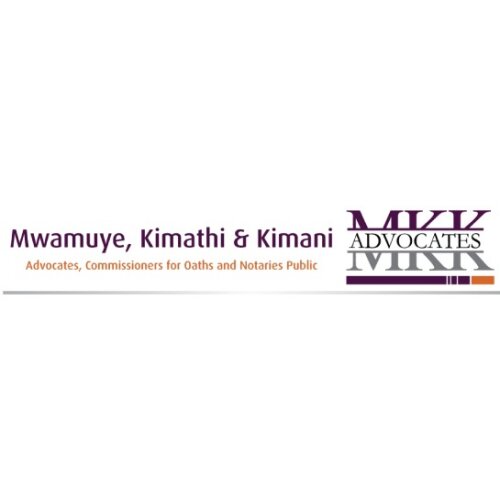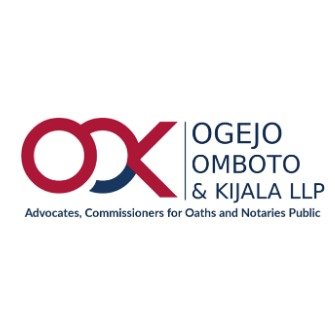Best Acquisition / Leveraged Finance Lawyers in Kisumu
Share your needs with us, get contacted by law firms.
Free. Takes 2 min.
List of the best lawyers in Kisumu, Kenya
About Acquisition / Leveraged Finance Law in Kisumu, Kenya
Acquisition and leveraged finance are specialized areas of finance law that deal with structuring, negotiating, and implementing the funding of company acquisitions, mergers, and other significant investments through various financial instruments. In Kisumu, Kenya, this area of law has become increasingly relevant due to the city’s growing business environment and the influx of investors seeking opportunities in diverse sectors. Acquisition finance typically involves loans or credit facilities provided to enable the purchase of other businesses or assets, while leveraged finance refers to the use of borrowed funds, often secured against the assets being acquired, to increase the potential return on investment.
Lawyers play a crucial role in navigating the complexities of acquisition and leveraged finance arrangements, ensuring compliance with Kenyan law, and safeguarding clients from potential legal and financial risks. Whether you are a business owner, investor, or lender in Kisumu, understanding the legal framework surrounding acquisition and leveraged finance is vital for successful transactions.
Why You May Need a Lawyer
Common situations where individuals and businesses may require legal assistance in acquisition or leveraged finance include the following:
- Negotiating, structuring, or drafting finance agreements for purchasing businesses or major assets in Kisumu
- Conducting due diligence on target companies to assess legal risks before acquisition
- Ensuring compliance with Kenyan company, tax, and competition laws
- Securing finance from banks or other lenders, and navigating the terms of loan agreements
- Handling regulatory approvals, including those required by the Competition Authority of Kenya and other government agencies
- Resolving disputes or issues that arise during or after a leveraged transaction
- Advising on the use of security interests in assets as collateral for loans
- Facilitating cross-border acquisitions involving Kenyan entities or assets
- Restructuring debts or refinancing leveraged transactions
- Advising on tax implications and optimal transaction structures
Local Laws Overview
Acquisition and leveraged finance arrangements in Kisumu are governed by several key statutes and regulatory requirements. Some of the most relevant legal aspects include:
- Companies Act, 2015 - Sets out requirements for company transactions, director responsibilities, disclosure obligations, and protections for minority shareholders.
- Capital Markets Authority Regulations - May apply to transactions involving public companies or securities.
- Competition Act, 2010 - Requires notification and approval of certain mergers and acquisitions that meet specific thresholds to prevent anti-competitive practices.
- Transfer of Property Act - Pertains to the transfer and use of property as collateral in leveraged finance transactions.
- Kenyan Tax Laws - Affect the structure and consequences of acquisition and financing transactions.
- Banking Act and Central Bank of Kenya Regulations - Govern how banks can extend credit and secure their interests in financed deals.
- Other sector-specific laws and regulations, which can affect industries such as real estate, manufacturing, and telecommunications.
Local legal considerations also include the registration of charges and security interests, compliance with foreign investment rules, and adherence to anti-money laundering regulations.
Frequently Asked Questions
What is acquisition finance?
Acquisition finance is the process of providing funds to buy another company or significant business assets, often through loan arrangements or structured credit facilities.
How does leveraged finance work?
Leveraged finance involves borrowing money, often secured against the assets being purchased, to fund acquisitions and potentially increase investment returns. It typically entails higher risk due to the use of debt.
Do I need approval for a business acquisition in Kisumu?
Some acquisitions, especially those involving large companies or sectors of public interest, require approval from bodies such as the Competition Authority of Kenya to guard against monopolies and ensure fair business practices.
What legal documents are required in an acquisition?
Key documents include share purchase agreements, loan agreements, security documents, regulatory filings, and board resolutions. Each transaction may also require certificates, warranties, and indemnities.
How is due diligence conducted in Kenya?
Due diligence typically involves a thorough review of the target company’s legal, financial, and regulatory status, including verifying ownership of assets, outstanding liabilities, and compliance with local laws.
Can foreign investors participate in acquisitions in Kisumu?
Yes, but foreign investors must comply with Kenyan investment regulations, including sectoral restrictions and registration requirements with entities such as the Kenya Investment Authority.
How are disputes in acquisition finance resolved?
Disputes can be resolved through negotiation, mediation, arbitration, or litigation in Kenyan courts, depending on the terms of the transaction agreements and parties’ preferences.
What risks are associated with leveraged financing?
Risks include potential loan defaults, loss of collateral, increased financial exposure, and regulatory non-compliance. Legal counsel helps assess and mitigate these risks.
Who registers charges and security interests in Kisumu?
Charges over company assets must be registered with the Companies Registry, and sometimes with other registries depending on the asset type, to establish legal priority and enforceability.
How long does the acquisition process typically take?
The timeline varies but often ranges from a few weeks to several months, depending on the complexity of the transaction, due diligence needs, regulatory approvals, and negotiation rounds.
Additional Resources
For more information and official guidance on acquisition and leveraged finance in Kisumu, the following local resources can be helpful:
- Competition Authority of Kenya - Provides approval and guidance for mergers and acquisitions needing regulatory clearance.
- Kenya Investment Authority - Assists with regulations and incentives for investors and can help foreign investors navigate local requirements.
- Central Bank of Kenya - Regulates the banking sector and lending practices, including leveraged transactions.
- Companies Registry (under the Office of the Attorney General) - Handles company registrations and the recording of charges and securities.
- Law Society of Kenya - Offers directories of qualified lawyers and information on legal services in Kisumu and nationwide.
Next Steps
If you are considering or involved in an acquisition or leveraged finance transaction in Kisumu, Kenya, the first step is to seek guidance from a qualified lawyer with experience in corporate finance. Begin by gathering all relevant documents and information about your proposed transaction, including any preliminary offers, company records, or financing proposals. Schedule a consultation to discuss your objectives, assess legal risks, and understand the requirements under Kenyan law.
A lawyer can help you navigate due diligence, structure the transaction, draft and negotiate contracts, secure required approvals, and ensure compliance with all legal and financial regulations. Engaging professional legal support early in the process can help prevent costly mistakes and increase your chances of a successful outcome.
If you need assistance finding a lawyer, consult the Law Society of Kenya’s directory or seek referrals from local business organizations. Always verify the credentials and experience of any legal professional you choose to work with, and do not hesitate to ask about their previous experience with acquisitions and leveraged finance for similar clients in Kisumu.
Lawzana helps you find the best lawyers and law firms in Kisumu through a curated and pre-screened list of qualified legal professionals. Our platform offers rankings and detailed profiles of attorneys and law firms, allowing you to compare based on practice areas, including Acquisition / Leveraged Finance, experience, and client feedback.
Each profile includes a description of the firm's areas of practice, client reviews, team members and partners, year of establishment, spoken languages, office locations, contact information, social media presence, and any published articles or resources. Most firms on our platform speak English and are experienced in both local and international legal matters.
Get a quote from top-rated law firms in Kisumu, Kenya — quickly, securely, and without unnecessary hassle.
Disclaimer:
The information provided on this page is for general informational purposes only and does not constitute legal advice. While we strive to ensure the accuracy and relevance of the content, legal information may change over time, and interpretations of the law can vary. You should always consult with a qualified legal professional for advice specific to your situation.
We disclaim all liability for actions taken or not taken based on the content of this page. If you believe any information is incorrect or outdated, please contact us, and we will review and update it where appropriate.














